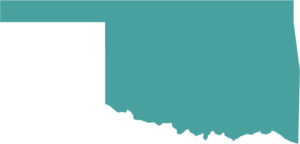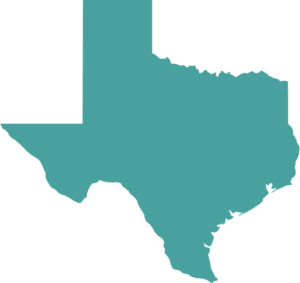Nexus After Wayfair – What You Need to Know
Free resource to help you determine how and if you have sales tax nexus and how to set yourself to manage sales tax nexus.
Post-Wayfair, significant sales tax legislative changes have happened on a daily basis, and the Southern states are no exception. We’ve seen a flurry of sales tax legislative activity recently regarding changes for remote sellers making sales into Southern states.
If you make sales into or have operations in Southern states, it’s crucial that you stay on top of all the latest sales tax changes. If you don’t know about significant changes affecting your company, it’s impossible to make the necessary changes to stay in compliance.
Let’s explore three significant recent sales tax updates that have taken place in the South post-Wayfair. We’ll examine how these changes may affect your business operations, including some developments that could benefit you and ease your administrative burden.
Note that these are just three significant developments that pertain to remote sellers specifically. There are many more changes taking place across the South. To keep up to date with the latest, bookmark our Remote Seller Nexus Chart and News & Tips section and check back regularly for updates.

Effective November 1, 2019, Oklahoma has enacted changes to its existing economic and marketplace nexus provisions. Under the new legislation, remote sellers with aggregate sales of tangible personal property in Oklahoma subject to tax of $100,000 or more during the preceding or current calendar year are required to collect and remit Oklahoma sales tax. The tax collection and remittance obligation will apply to the first calendar month following the month when the threshold is met.
This is a significant change to the existing provisions that require remote sellers with taxable sales in excess of $10,000 to elect to collect tax or comply with notice and reporting provisions which became effective July 1, 2018. The new legislation also eliminates the option for remote sellers to elect between tax collection/remittance or complying with notice and reporting requirements.
For marketplace facilitators and referrers, the threshold remains at $10,000, and they still have the option to elect to collect and remit tax or comply with notice and reporting requirements.
The requirement that a marketplace facilitator elect between tax collection/remittance and complying with notice and reporting requirements only applies to sales made through its marketplace forum by or on behalf of marketplace sellers. It does not apply to sales made by a marketplace facilitator on its own behalf.
The requirement that a referrer elect between tax collection/remittance and complying with notice and reporting requirements applies to sales:
So what does this mean for remote sellers? First, it means that effective November 1, 2019, electing to comply with notice and reporting requirements instead of collecting and remitting tax if you meet the economic nexus threshold in Oklahoma is not an option. Second, be aware of the new, much higher threshold that goes into effect on November 1, 2019 when determining if you have nexus in Oklahoma.
If you need assistance determining whether you meet the Oklahoma economic nexus thresholds (or any other state’s), you should consider having a sales tax professional review your activity by taking advantage of our Wayfair Risk Analysis.

Tennessee has enacted legislation that includes new reporting requirements for out-of-state sellers and eliminates the state’s 2.25% flat rate local tax option for out-of-state sellers.
Under the new legislation, an out-of-state seller must provide information as prescribed by the commissioner to indicate the incorporated municipality or unincorporated area of a county into which a sale is shipped or delivered when reporting local sales and use tax for Tennessee. This is required even if the local tax rates of the municipality and unincorporated area of the county are the same.
As proscribed in Tennessee Department of Revenue (DOR) Notice #19-05, out-of-state sellers must report the actual jurisdiction into which a sale is shipped or delivered when filing their sales and use tax returns so that the DOR can properly distribute the tax collected to the local jurisdictions.
Sales shipped or delivered to an address within an incorporated municipality must be reported separately from sales shipped or delivered to an address in the unincorporated area of a county. The DOR suggests using their boundary database available on the DOR website to determine the local rates that apply.
The legislation also repeals the uniform local rate option of 2.25% previously available to some out-of-state sellers. Beginning October 1, 2019, out-of-state sellers must apply the specific local sales tax rate in effect for the city or county jurisdiction into which sales are shipped to or delivered. This change will be effective at the same time as the economic nexus provisions which will require remote sellers with over $500,000 is sales to collect the Tennessee tax.
The updated information reporting requirements and repeal of the uniform local rate option could lead to an increased administrative burden for out-of-state sellers filing sales and use tax returns in Tennessee. It’s important that remote sellers making sales into Tennessee comply with these new requirements and ensure that they are applying the correct local sales tax rates to their Tennessee sales. Not doing so could lead to audit risk.

Unlike Tennessee, which is repealing its uniform local tax rate for remote sellers, Texas has enacted legislation that authorizes the state comptroller to establish a single uniform tax rate for remote sellers to collect and remit local sales and use taxes. The legislation takes effect on October 1, 2019, the same date that the state’s economic nexus legislation will begin to be enforced.
Remote sellers can opt into the uniform local tax rate instead of collecting and remitting taxes at different rates imposed by the localities in which they make sales. A remote seller who elects to use the single local use tax rate must notify the comptroller of the election before using that rate.
The election applies to all sales of taxable items made by the remote seller unless the remote seller revokes the election by notifying the comptroller. The uniform local tax rate will be determined annually by the comptroller. The local rate for October 1 to December 31, 2019 will be 1.75% resulting in a combined rate of 8% to be collected.
If a purchaser pays a higher rate to a remote seller using the flat rate than what would have been due without the flat rate, the purchaser is entitled to file for a refund of the difference. However, purchasers who store, use or consume taxable items from a remote seller using the flat rate will not be liable for any additional amount of local use tax as long as the tax is paid to the remote seller.
This is a great development for remote sellers making sales into Texas as it will ease their administrative burden. Instead of figuring out the local tax rates for each jurisdiction that they’re making sales into, remote sellers can simply use the uniform local tax rate established by the comptroller. Just be aware that the rate will change on an annual basis, so adjust your systems accordingly to ensure that the correct rate is being charged.
These are just a few significant recent sales tax developments in the Southern states. It’s important to realize that all kinds of sales tax changes happen every day, especially post-Wayfair.
When you take the entire Southern region into consideration, there are a lot of legislative changes happening that could have a significant impact on your business operations. If you do business or make sales in the South, you’ll want to stay on top of the big changes taking place so you can make sure you’re staying compliant.
 About the Author:
About the Author:Diane L. Yetter is a strategist, advisor, speaker, and author in the field of sales and use tax. She is president and founder of YETTER Tax and founder of the Sales Tax Institute. You can find Diane on LinkedIn and Twitter.